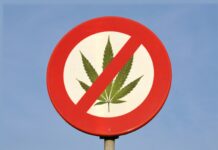
At a national summit on police efforts to address the United States’ opioid epidemic, U.S. Surgeon General Jerome Adams spoke about the need for further scientific and medical research on cannabis. In response to a question about the U.S. Controlled Substances Act (CSA), Adams called for a review of the way the government schedules different medications, including marijuana. The CSA lists cannabis as a Schedule I substance, a classification reserved for drugs deemed the most dangerous, with no accepted medical use and high abuse potential. The extraordinary difficulty and cost scientists and doctors face if they try to study cannabis is a major consequence of that classification. In the U.S., no drug is both as common yet as under-researched as marijuana. And Surgeon General Adams blames the lack of research on the plant’s Schedule I status.
U.S. Surgeon General Renews Support for Rescheduling Medical Cannabis
Last Thursday’s statements at the Police Assisted Addiction Recovery Initiative conference in Massachusetts weren’t the first time Surgeon General Jerome Adams has spoken favorably about reclassifying medical cannabis. In a public speech last December at the National Black Caucus of State Legislators’ annual conference, Adams said he felt medical marijuana “should be like any other drug.”
During the speech, Adams went on to call for allowing the FDA to vet and study medical cannabis. Last December, the FDA had not yet approved the cannabis-derived epilepsy medication Epidiolex. But it had approved cannabidiol oil and other CBD derivatives. The FDA has also authorized a handful of studies, including one investigating the use of cannabis to treat PTSD in veterans.
Adams’ comments last week echo his speech from a year ago. As Surgeon General, he still doesn’t condone adult, “recreational” cannabis use. And he remains adamantly opposed to smoking cannabis, even for medical reasons. Nevertheless, Adams is committed to basing policy decisions on science, not the threadbare prejudices that have hampered federal drug reform for decades. Throughout his career, for example, Adams has supported a number of evidence-based harm reduction approaches to a range of public health issues, from opioids to HIV/AIDS. However, Adams remains skeptical about cannabis’ potential as an opioid exit drug or opioid replacement.
Surgeon General Needs to Apply Pressure to Justice Department on Rescheduling MMJ
Adams’ position on medical cannabis stands in sharp contrast to that of former Attorney General Jeff Sessions. And with Sessions out of office, there’s an opportunity for the Surgeon General to put some pressure on the Justice Department regarding rescheduling medical cannabis. He’d have the support of members of Congress, where a bi-partisan consensus on the need for amending the CSA continues gaining momentum. It would be possible to create a separate research designation for cannabis, opening up avenues to research that have remained blocked by federal prohibition.
“Just as we need to look at criminal justice laws, rules and regulations, we need to look at health laws, rules and regulations, and that includes the scheduling system,” Adams said. Then again, advocates have a strong case that the time for looking is over and what’s needed now is concrete action.











